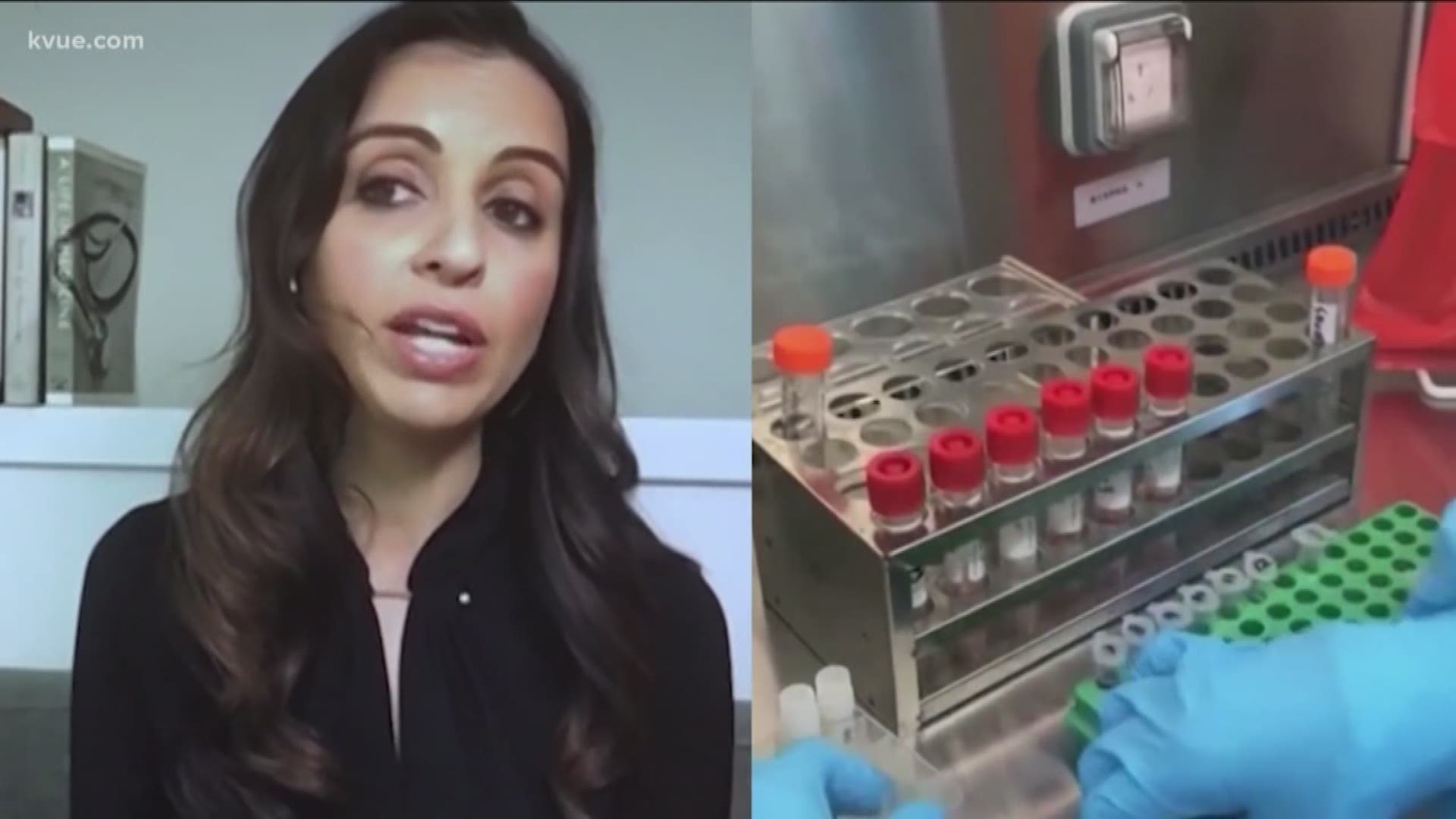AUSTIN, Texas — The battle against COVID-19 is worldwide and it's pushing scientists more than ever to find a solution for suffering patients.
"Many different treatments are actually being studied right now. They're all preliminary and, at this point, for the most part, they've only been approved on an emergency basis for those patients that are in the hospital and quite sick," said Dr. Payal Kohli, an internationally-known cardiologist. "So, they're not really being used on an outpatient basis."
Dr. Kohli said three current treatment options look promising.
First, she talked about the combination of hydroxycloroquine and azithromycin.
RELATED:
"Chloroquine was first used to treat malaria more than 80 years ago and hydroxychloroquine is a derivative of that medicine that has been FDA-approved for lupus and rheumatoid arthritis," said Kohli.
She said azithromycin, or the Z-Pack, is normally used for pneumonia and bronchitis.
"Essentially, it's a combination of the two medicines," said Kohli. "What they do is they prevent the virus from really getting into the lung cells and then if it does get into the lung cells, they prevent it from replicating. They prevent the immune response that's occurring in the body from being as exaggerated."
RELATED:
There isn't much data, which is why it's not being used on every coronavirus patient, but another treatment researchers are looking at is called convalescent serum.
Dr. Kohli said healthcare workers will collect convalescent serum from recovered patients. Then they'll inject current COVID-19 patients with that plasma.
"That is also in clinical trials currently in New York City," said Kohli.
A third treatment doctors are researching to fight COVID-19 is called remdesivir.
"It was designed originally for Ebola, which they're also testing to see, again, no definitive data from that one either. So about three main therapies that are really kind of the mainstay of what we're looking at right now," said Kohli. "We did get some reports that have medication use for HIV is not been effective for this condition."
RELATED:
Dr. Kohli said, a couple weeks ago, the first COVID-19 vaccine was put into phase one of clinical trials, but vaccines usually go through three phases. She said doctors don't expect the results of that vaccines for about a year or so.
PEOPLE ARE ALSO READING:

